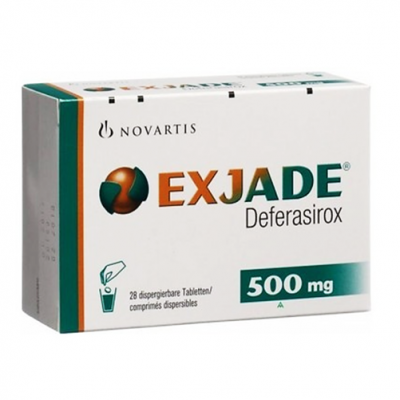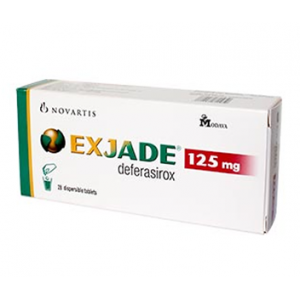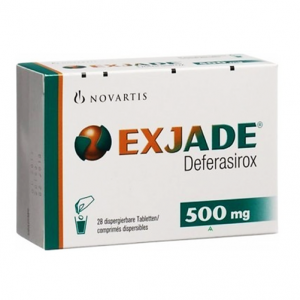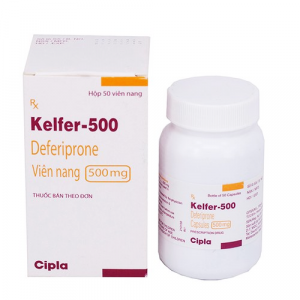- Anti-hestaminic & Respiratory Drugs (16)
- Anti-inflammatory Drugs (147)
- Baby & Mom (1121) +-
- Baby & Mom > Bath, skin & Hair > Skin Care > wibes (47)
- Beauty (2392) +-
- Beauty > Skin Care > whitening (232)
- Chemotherapy & Immune Response (369) +-
- Chemotherapy & Immune Response > ANTI-FUNGAL (4)
- Chemotherapy & Immune Response > Chemotherapeutic Agents > Hormone Antagonists >Enzyme Inhibitors (122)
- CIRCULATORY DISTURBANCE AGENTS (15)
- CORTECOSTEROIDS (8)
- Diet & Fitness Products (190) +-
- DRUG AFFECTING CENTRAL NERVOUS SYSTEM (142)
- Drugs affecting CNS >Anti- epileptic (52)
- LIVER SUPPORT>MULTIVITAMINS (24)
-
Medical Supplies (455)
+-
- Chemicals & Disinfectants (17)
- Dental Supplies (27)
- Devices & Instruments (8)
- Diabetic Supplies (95)
- General Medical Supplies (21)
- I.V & Medical Solution (0)
- Intensive Care Unit & Anesthesia Supplies (0)
- Kindney Unit Supplies (13)
- Lab Supplies (1)
- Miscellaneous (21)
- Neonatal Unit Supplies (0)
- Operation Room Supplies (4)
- Sanitary (5)
- Sterilization Supplies (0)
- Surgical Sutures (4)
- Syringes (2)
-
Medicines & Health (2216)
+-
- Allergy & Sinus (87)
- Children's Health Care (48)
- Cough, Cold & Flu (265)
- Digestive Health & Nausea (184)
- Ear, Nose & Throat Care (153)
- Eye Care (103)
- Feminine Care (287)
- Foot Care (3)
- Orthopaedic Appliances (0)
- Pain Relief & Management (185)
- Pill Organizer (0)
- Skin Treatments (640)
- Sleep & Snoring Aids (0)
- Support & Braces (6)
- Medicines & health > Gout releif (35)
- Natural & Organic Products (62) +-
- OTC > Analgesics > Anti-inflammatory Drugs (35)
-
Personal Care (2699)
+-
- Bath & Body (209)
- Deodorant & Anti-perspirants (159)
- Ear, Nose & Throat Care (147)
- Eye Care (109)
- Feminine Care (319)
- Foot Care (10)
- Hair Care (350)
- Home Tests & Monitorings (16)
- Incontinence (7)
- Lip Care (19)
- Massage & Relaxation (15)
- Natural & Organic Personal Care (6)
- Oral Care (74)
- Pregnancy & Fertility (52)
- Shaving & Grooming (53)
- Sun Care (52)
- Prescribtion drugs > cardiovascular system > Hypertention drugs (210)
-
Prescription Drugs (2320)
+-
- Analgesics (155)
- Cardiovascular System (291)
- Drugs Affecting CNS (160)
- Drugs Affecting Musculoskeletal System (49)
- Drugs Used In Infections (31)
- Ear & Nose Drugs (2)
- Endocrine System (129)
- Gastrointestinal Tract (190)
- Gastrointestinal Tract (176)
- Miscellaneous (2)
- Nutrients & Blood Electrolytes (2)
- Obstetric & Gynaecology Disorders (1)
- Respiratory System (106)
- Topical Preparations (21)
- Urinary Tract Disorders (12)
- Vaccines (1)
- Prescription Drugs > Cardiovascular System > Anti-hypertensive drugs > Duiretics > Loop duiretics (47)
- prescription drugs > cardiovascular system >Anti-hypertensive drugs > duiretics > Aldosterone antagonist duiretics (64)
- prescription drugs > cardiovascular system >Anti-hypertensive drugs > duiretics > duiretic combinations (61)
- prescription drugs > cardiovascular system >Anti-hypertensive drugs > duiretics > loop duiretics (61)
- Prescription Drugs > Gastrointestinal Tract > Liver treatment (49)
- Sexual Wellness (170) +-
- strong anti-emetic & adjuvent used with anti-neoplastic (0)
- Vitamins & Minerals Supplements (405)
- Vitamins & Supplements> folic acid (1643) +-
Ex Tax: 4,950EGP
Example
You can return the product within 14 days of purchase.
ReturnsYou can return the product within 14 days of purchase.

EXJADE 500 MG ( DEFERASIROX ) 28 DISPERSABLE TABLETS
What is it and how is it used?
What EXJADE is
EXJADE contains an active substance called deferasirox. It is an iron chelator which is a medicine used to remove the excess iron from the body (also called iron overload).
What EXJADE is used for
EXJADE is used to treat iron overload caused by blood transfusions.
Repeated blood transfusions may be necessary in patients with various types of anaemia (for example thalassaemia, sickle cell disease or myelodysplastic syndromes). However, repeated blood transfusions can cause a build-up of excess iron. This is because blood contains iron and your body does not have a natural way to remove the excess iron you get with your blood transfusions. Over time, the excess iron can damage important organs such as the liver and heart. Medicines called iron chelators are used to remove the excess iron and reduce the risk of it causing organ damage.
EXJADE is used to treat chronic iron overload caused by frequent blood transfusions in patients with beta thalassaemia major aged 6 years and older.
EXJADE is also used when deferoxamine therapy is contraindicated or inadequate in patients with beta thalassaemia major with iron overload caused by infrequent blood transfusions, in patients with other types of anaemias, and in children aged 2 to 5 years.
How EXJADE works
EXJADE traps and removes excess iron which is then excreted mainly in the stools.
Monitoring your EXJADE treatment
You will have regular blood and urine tests during treatment. These will monitor the amount of iron in your body (blood level of ferritin) to see how well EXJADE is working. The tests will also monitor your kidney function (blood level of creatinine, presence of protein in the urine) and liver function (blood level of transaminases). Your doctor will take these tests into consideration when deciding on the dose of EXJADE most suitable for you.
You will get a booklet from your doctor which will help you to track your response to EXJADE. Your doctor will write your blood tests in this booklet at each visit. Keep the booklet safe and bring it with you each time you visit your doctor.
Your eyesight and hearing will be tested each year during treatment as a precautionary measure.
If you have any questions about how EXJADE works or why this medicine has been prescribed for you, ask your doctor.
What do you have to consider before using it?
Follow all the doctor?s instructions carefully. They may differ from the general information in this leaflet.
Do not take EXJADE
if you are allergic (hypersensitive) to deferasirox or any of the other ingredients of EXJADE listed in section 6 of this leaflet. If this applies to you, tell your doctor before taking EXJADE. If you think you may be allergic, ask your doctor for advice.
if you have kidney disease.
if you are currently taking another iron chelator medication.
EXJADE is not recommended
if you are at an advanced stage of myelodysplastic syndrome (MDS) or have advanced cancer.
Take special care with EXJADE
if you have a liver problem.
if you have a cardiac problem due to iron overload.
if you notice a marked decrease in your urine output (sign of kidney problem).
if you develop a severe rash, or difficulty breathing and dizziness or swelling mainly of the face and throat (signs of severe allergic reaction).
if you develop a rash, reddening of the skin, blistering of lips, eyes or mouth, skin peeling, sore throat (signs of severe skin reaction).
if you experience a combination of drowsiness, upper right abdominal pain, yellowing or increased yellowing of your skin or eyes and dark urine (signs of liver problems).
if you vomit blood and/or have black stools.
if you experience frequent abdominal pain, particularly after eating or taking EXJADE.
if you experience frequent heartburn.
if you are taking or have recently taken certain painkillers, anti-inflammatory medicines or oral bisphosphonates (see ?Taking other medicines?).
if you are taking or have recently taken anticoagulant medication (see ?Taking other medicines?).
if you have a low level of platelets in your blood test. If any of these apply to you, tell your doctor straight away.
Taking other medicines
Antacids (medicines used to treat heartburn) containing aluminium should not be taken at the same time of day as EXJADE.
Please tell your doctor or pharmacist if you are taking or have recently taken any other medicines, including medicines obtained without a prescription. This includes in particular:
ciclosporin (used to prevent the body rejecting a transplanted organ or for other conditions, such as rheumatoid arthritis or atopic dermatitis),
simvastatin (used to lower cholesterol),
certain painkillers or anti-inflammatory medicines (e.g. aspirin, ibuprofen, corticosteroids),
oral bisphosphonates (used to treat osteoporosis),
anticoagulant medicines (used to prevent or treat blood clotting),
hormonal contraceptive agents (birth control medicines),
bepridil, ergotamine,
repaglinide (used to treat diabetes),
rifampicin (used to treat tuberculosis),
phenytoin, phenobarbital, carbamazepine (used to treat epilepsy),
ritonavir (used in the treatment of HIV infection),
paclitaxel (used in cancer treatment),
theophylline (used to treat respiratory diseases such as asthma),
clozapine (used to treat psychiatric disorders such as schizophrenia),
tizanidine (used as a muscle relaxant).
Additional tests may be required to monitor the blood levels of some of these medicines.
Older people (age 65 years and over)
EXJADE can be used by people aged 65 years and over at the same dose as for other adults. Elderly patients may experience more side effects than younger patients. They should be monitored closely by their doctor for side effects that may require a dose adjustment.
Children and adolescents (age 2 years to 17 years)
EXJADE can be used in adolescents and children aged 2 years and over. As the patient grows the doctor will adjust the dose.
Pregnancy and breast-feeding
EXJADE is not recommended during pregnancy unless clearly necessary. If you are pregnant or think that you may be, tell your doctor who will discuss with you whether you can take EXJADE during your pregnancy.
Breast-feeding is not recommended during treatment with EXJADE. Tell your doctor if you are breast-feeding.
Ask your doctor or pharmacist for advice before taking any medicine.
Driving and using machines
If you feel dizzy after taking EXJADE, do not drive or operate any tools or machines until you are feeling normal again.
Important information about some of the ingredients of EXJADE
If you have been told by your doctor that you have an intolerance to some sugars, contact your doctor before taking this medicine.
How is it used?
Always take EXJADE exactly as your doctor has told you. You should check with your doctor or pharmacist if you are not sure.
How much EXJADE to take
The dose of EXJADE is related to body weight for all patients. Your doctor will calculate the dose you need and tell you how many tablets to take each day.
- The usual daily dose at the start of the treatment is 20 mg per kilogram body weight. A higher or lower starting dose may be recommended by your doctor based on your individual treatment needs.
- Depending on how you respond to treatment, your doctor may later adjust your treatment to a higher or lower dose.
- The maximum recommended daily dose is 40 mg per kilogram body weight.
When to take EXJADE
- Take EXJADE once a day, every day, at about the same time each day.
- Take the tablets on an empty stomach.
- Then wait at least 30 minutes before eating any food.
Taking EXJADE at the same time each day will help you remember when to take your tablets.
How to take EXJADE Drop the tablets into a glass of water, or apple or orange juice 100 to 200 ml. Stir until the tablets dissolve completely. The liquid in the glass will look cloudy. Drink everything in the glass. Then add a little water or juice to what is left in the glass and drink that too. Do not dissolve the tablets in fizzy drinks or milk. Do not chew, break or crush the tablets. Do not swallow the tablets whole.
How long to take EXJADE
Continue taking EXJADE every day for as long as your doctor tells you. This is a long-term treatment, possibly lasting for months or years. Your doctor will regularly monitor your condition to check that the treatment is having the desired effect (see also section 1: ?Monitoring your EXJADE treatment?).
If you have questions about how long to take EXJADE, talk to your doctor.
If you take more EXJADE than you should
If you have taken too much EXJADE, or if someone else accidentally takes your tablets, contact your doctor or hospital for advice straight away. Show them the pack of tablets. Medical treatment may be necessary.
If you forget to take EXJADE
If you miss a dose, take it as soon as you remember on that day. Take your next dose as scheduled. Do not take a double dose on the next day to make up for the forgotten tablet(s).
If you stop taking EXJADE
Do not stop taking EXJADE unless your doctor tells you to. If you stop taking it, the excess iron will no longer be removed from your body (see also above section ?How long to take EXJADE?).
Write a review
Your Name:Your Review: Note: HTML is not translated!
Rating: Bad Good
Enter the code in the box below:








